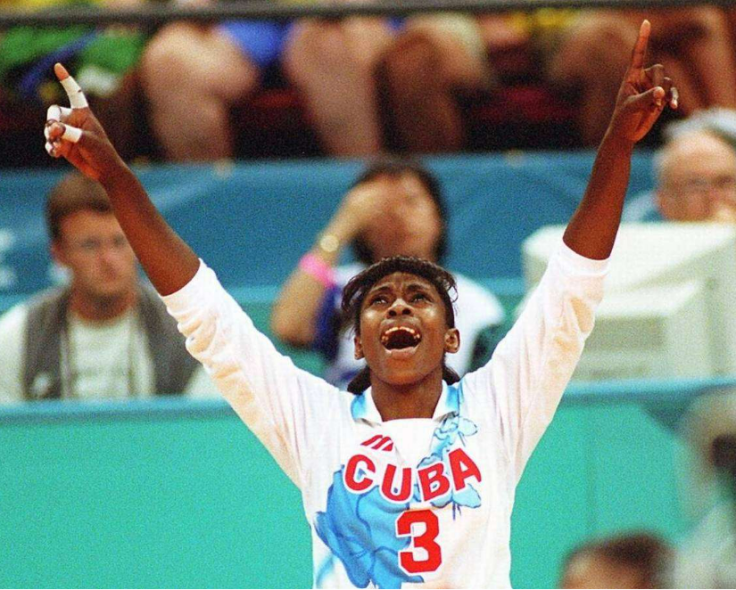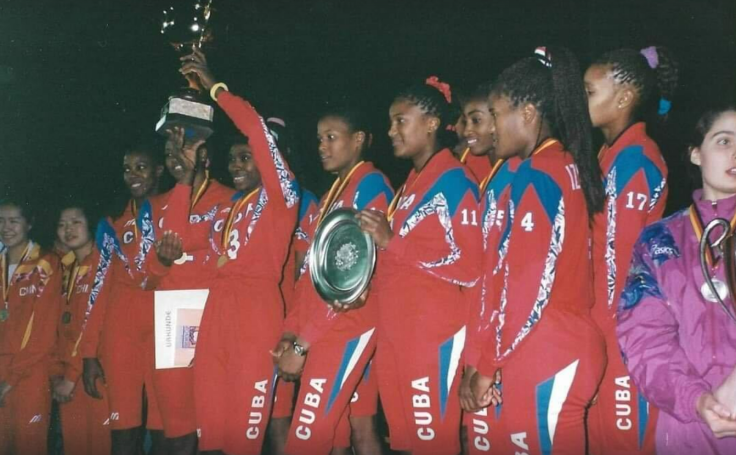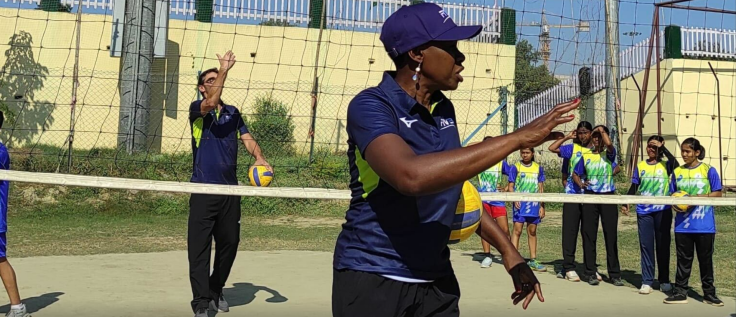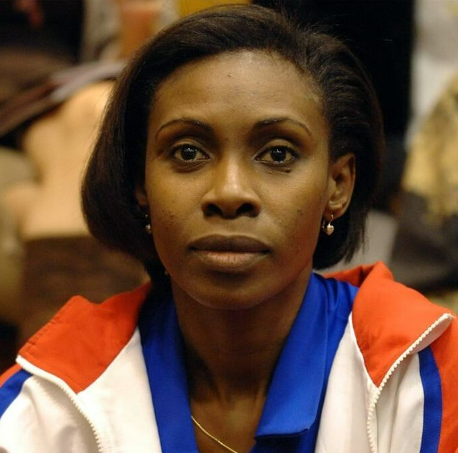In celebration's of our "Semana Afro Latina," for this week's Latin Women in Sports column we sat with former volleyball superstar and one of the greatest female athletes of all time, Cuban Mireya Luis, to talk about the ups and downs in her Hall-of-Fame career, the hurdles she and her teammates experienced in the road to immortality and what it means to her being a proud Afro-latina.

SEATTLE - The path to greatness has never been easy, and for Mireya Luis, it was no exception. Born in 1967, Luis was the youngest of nine children who grew up in the small town of Aguilar, in the province of Vertientes, Cuba. With the country living its first few years under the control of the Cuban Communist Party, her mother Catalina, decided to move with her kids to the city of Camagüey in an attempt to provide then with a better future with more opportunities. This brave act of love is what started Luis' journey.
Family played a key role in Luis' development as one of the greatest athletes of all time, but most importantly, it shaped her into an even better person. 'I was born into a poor family; my father was an immigrant from Haiti, and my mother was from Cuba,' she recalls. 'They were both highly educated, and I am not talking about the type of education you receive in school because my mother did not graduate from elementary school until I was 11 years old. Their education came from what they learned at home. We were poor, but every night we would all gather around the dinner table to thank God we had something to eat; that's what stuck with me. Every day I wake up, I thank God for another day. All that comes from having a happy and nurtured upbringing.'
At the age of 15, Luis made her debut with the Cuban women's volleyball team known as the 'Morenas del Caribe' in 1983—a team that had won the World Championship in 1978. To secure a spot on the team, she had to once again prove her worth, just as she did to initially earn her place.

When asked about some of the struggles she had to experience as both a woman and an Afro-Latina, she replied by saying, 'Just by the pure fact of being women, we already have hurdles to overcome. We used to be seen as the weaker sex, but in reality, we have never been weak. I think women have a mental fortitude that no other human being possesses,' Luis added. 'I had to overcome a lot of things in my journey. I made the Cuban national team coming from a poor family, as someone who didn't have the physical abilities of others. I had to prove my worth and abilities everywhere I went. At the age of 12, I had to show scouts that I was able to touch the ceiling if I wanted to make the team. I remember during the tryouts, I had to show the coaches I could jump higher than all the other tall girls. They asked me to demonstrate, and I remember the coaches being perplexed at how a little girl could jump that high.'
"I never felt like I was less than anybody, nor no one ever made feel belittled because I was able to prove my worth everywhere I went"
As the captain of the 'Morenas del Caribe', Luis went on to win everything there is to win in women's volleyball between 1983 and 2000, including eight consecutive major titles in the 1990s. But for Luis, the endless medals meant nothing compared to the satisfaction they felt of knowing they had made people in Cuba happy.
"My biggest pride was being able to make millions of people happy. Sometimes we felt ashamed of coming back home with a second place finish in a global competition. When we won all those titles and knew that we had made people at home happy, it felt like glory. It's a feeling I can't put into words. The biggest legacy we left as a team was bringing happiness," Luis said.
More than two decades after Luis last jumped and attacked the volleyball net, she is still involved in the sport, organizing events and being a speaker at volleyball clinics. "I am an executive vice president and an ambassador for the FIVB," Luis said. "Some of my favorite things I like to do is social work. Incentivizing young people to get into sports, getting rid of bad habits and addictions. After spending more than 18 years with the national team and winning an endless number of championships, to me it feels like a blessing having the opportunity to help with my grain of sand in this goal of inspiring the younger generations to do things that are good for them."

Committed to inspiring a new generation of volleyball players, Mireya Luis continues to be the same passionate spiker that won three gold medals for the Cuban national team. "Sometimes I do clinics and I realize that it's impossible to teach a young girl to play volleyball in like three hours," she says. "But it is possible to leave with them a message that says 'I was able to do it and you can too'. No matter if you are short, tall, white, black, rich or poor...sports are like a vehicle in life. We can do anything in life but it all depends on yourself, on your willpower."

She admits that the sport as a whole has grown exponentially since the last time she suit up to play volleyball. The International Federation of Volleyball (IFVB) is the federation with the most affiliated countries in the world. "The sport has been spread all over the globe, we have 222 affiliated members. It is the sport that is played the most among children because its a collective effort," Luis said. "Kids have the opportunity to touch the ball, communicate with each other and to participate in the game, and that aspect is fundamental for this generation."
© 2025 Latin Times. All rights reserved. Do not reproduce without permission.





